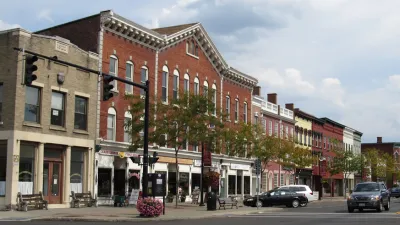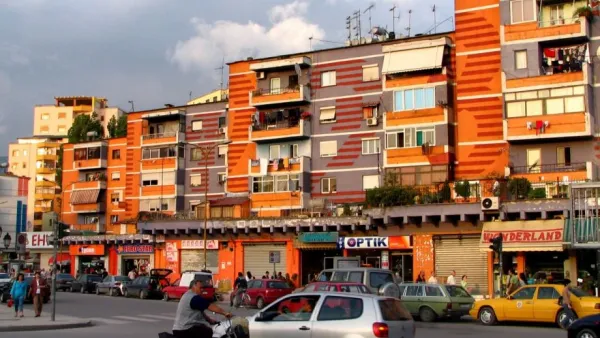Cities have appeared to figure very little into the presidential election up to now. To get a sense of whether this impression is accurate, I spent some time looking at the two party platforms, and the two candidate's websites.

A detailed look at Democratic and Republican party platforms and candidate websites shows that it’s quite true that cities are being ignore. However, the different ways in which cities don’t seem to matter much to either party sheds an interesting light on the candidates and the parties they do or do not lead. Yes, we all know that platforms are rhetoric, but rhetoric matters--the specifics may be disregarded by whomever wins the election, but the rhetoric sets the tone.
Predictably enough, the Republican platform is a 54-page angry, frustrated rant directed at President Obama, democrats, bureaucrats, big government, anything anyone on the right doesn’t like. It talks far more about rolling back than moving forward. The only reference to cities that I found in the entire document was a thinly veiled call to roll back D.C. home rule, calling on Congress to “assert, by whatever means necessary, its constitutional prerogatives regarding the District” (page 30), although one might add the platform’s denunciation of Obama’s “exclusively urban vision of dense housing and government transit […] meant to “coerce people out of their cars.” Had I but known.
Hillary’s website (interestingly, on her website she is “Hillary,” while on Trump’s website he is “Trump” or “Mr. Trump,” and never “Donald”) is far heavier on substance. She has detailed positions on 37--yes 37--separate issues from ending Alzheimer’s disease to addressing climate change. That’s a lot of issues, yet the only one that has anything to do with the places where Americans live is about “rural communities.” Nothing about cities, metros, regions, land use, housing. Nothing. And what about the Democratic platform? It’s a . . .
FULL STORY: Does Place Matter Anymore? Cities and the 2016 Election

Analysis: Cybertruck Fatality Rate Far Exceeds That of Ford Pinto
The Tesla Cybertruck was recalled seven times last year.

National Parks Layoffs Will Cause Communities to Lose Billions
Thousands of essential park workers were laid off this week, just before the busy spring break season.

Retro-silient?: America’s First “Eco-burb,” The Woodlands Turns 50
A master-planned community north of Houston offers lessons on green infrastructure and resilient design, but falls short of its founder’s lofty affordability and walkability goals.

Test News Post 1
This is a summary

Analysis: Cybertruck Fatality Rate Far Exceeds That of Ford Pinto
The Tesla Cybertruck was recalled seven times last year.

Test News Headline 46
Test for the image on the front page.
Urban Design for Planners 1: Software Tools
This six-course series explores essential urban design concepts using open source software and equips planners with the tools they need to participate fully in the urban design process.
Planning for Universal Design
Learn the tools for implementing Universal Design in planning regulations.
EMC Planning Group, Inc.
Planetizen
Planetizen
Mpact (formerly Rail~Volution)
Great Falls Development Authority, Inc.
HUDs Office of Policy Development and Research
NYU Wagner Graduate School of Public Service


























